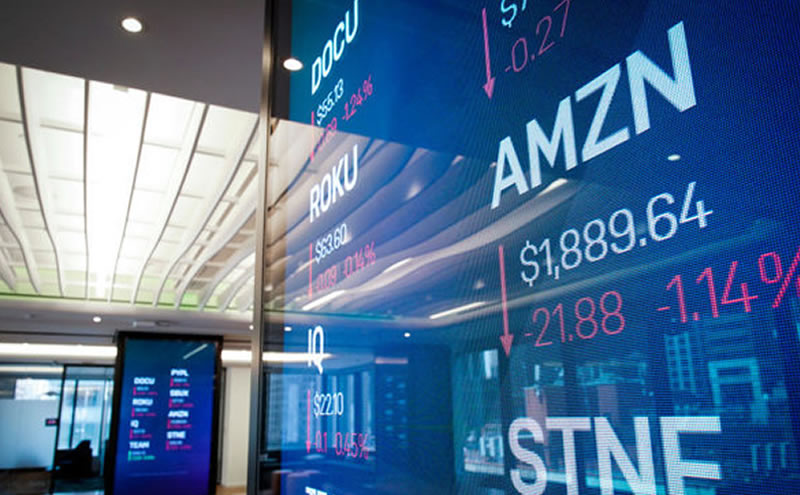Last year, Apple (NASDAQ:AAPL) and Tesla (NASDAQ:TSLA) both executed stock splits and saw a tremendous bull run into the split date, as investors tried to get their hands on as many shares of these valuable companies as possible. But that’s not really how it works, right?
Mathematically speaking, a stock split does nothing to alter the value of a stock or company. As the saying goes: there are just more slices of the same pizza. But you also cannot deny the psychological impact a stock split has on the minds of investors, particularly retail investors. Aside from buying fractional shares, a high share price can be daunting and dissuade people from even trying to invest in the company. For advanced traders, a cheaper share price means you can buy more shares, which can come in handy if you like to make premiums by selling covered calls. No matter how you spin it, the markets get excited for stock splits, so let’s take a look at three companies that are long overdue for one.
Amazon (NASDAQ:AMZN): This is probably the one stock that first pops in everyone’s mind when we talk about stock splits. At its current price of just over $3,600.00 per share, Amazon is one of the most expensive stocks on the market. Many believed it was former CEO and current Executive Chairman Jeff Bezos who was against a stock split. This led to rumors that new CEO Andy Jassy would be more inclined to allow one. It seems as though Amazon is perfectly fine keeping its share price higher, so don’t expect a stock split anytime soon.
Shopify (NYSE:SHOP): On the Toronto Stock Exchange, Shopify’s Canadian stock just hit $2,000 CAD per share for the first time in its history. The U.S. version of the stock is just as pricey at almost $1,600 USD per share. Shopify was a wonderful story a few years ago when the stock was returning exponential gains to those who were lucky enough to get in early. Now, shares are trading at a premium, and with a relatively low share float of only 112 million, the company can execute a split without worrying about too much dilution. Will it happen? There’s been no sign of it so far, and Shopify seems to be heading down the path of Amazon, where investors will always regret calling the stock too expensive.
MercadoLibre (NASDAQ:MELI): I could have gone with a stock like Alphabet (NASDAQ:GOOGL), but instead I chose MercadoLibre. Latin America’s largest eCommerce and digital payments company, MercadoLibre has been a very popular stock that has provided investors with many multi-bagged returns. Why is MercadoLibre so expensive? First, it has an extremely low share float with only 49 million shares outstanding. Second, it may seem expensive, but with a market cap of nearly $80 billion, the stock trades at a very reasonable price to sales ratio of 16.9. This is incredibly low for a high growth stock, especially compared to peers like Sea Limited (NYSE:SEA) which trades at a multiple of 28, and the aforementioned Shopify which trades at a multiple of 57. I would love to see MercadoLibre split its stock, because I think the company can return to these levels again in the future, especially given the cheap multiples that it currently trades at.
More News
 Nvidia Crushed It. The Market Shrugged. Here’s Why I’m Not Surprised
Nvidia Crushed It. The Market Shrugged. Here’s Why I’m Not Surprised NVIDIA Unleashes AI Power: Supercomputers, Cybersecurity, and Healthcare Disruption
NVIDIA Unleashes AI Power: Supercomputers, Cybersecurity, and Healthcare Disruption Tesla’s “We, Robot” Event: A Bold Play for the Future
Tesla’s “We, Robot” Event: A Bold Play for the Future Uber's Bold Step Into Driverless Rides: Here's What It Means for the Future of Travel
Uber's Bold Step Into Driverless Rides: Here's What It Means for the Future of Travel Nvidia's Wild Ride: Buy, Sell, or Just Hang Tight?
Nvidia's Wild Ride: Buy, Sell, or Just Hang Tight? MicroStrategy's Big Bitcoin Bet: Risky or Genius?
MicroStrategy's Big Bitcoin Bet: Risky or Genius?3 Stocks That Need to Split
In commemoration of NVIDIA’s (NASDAQ:NVDA) recent 4 for 1 stock split, it’s time to scan the markets for some other candidates.
Disclaimer: I have no positions in any of the stocks mentioned. I wrote this article myself, and it expresses my own opinions. I have no business relationship with any company whose stock is mentioned in this article. All information should be independently verified and should not be relied upon for purposes of transacting securities or other investments. See terms for more info.
Nike's latest financial report reveals both triumphs and tribulations as the iconic brand grapples with market challenges and strategic shifts.
Levi Strauss & Co. boasts a strong quarter with direct-to-consumer growth and innovative fashion, but can it navigate the choppy waters of the retail market?
As competition heats up, Amazon unveils a daring new strategy to offer unbeatable prices and direct shipping from China.
Court ruling intensifies scrutiny on Tesla's self-driving claims.
Surpassing 40 million users, Netflix’s ad-supported plan redefines the streaming landscape.
Since big tech is the theme, you probably know what I have my eyes on for next week.
I’m cautiously optimistic but I’m at the point where I need to see it to believe it.
Here are two stocks that are currently less trading in the single digits that I believe have some relative upside from their current prices.












Rate this article